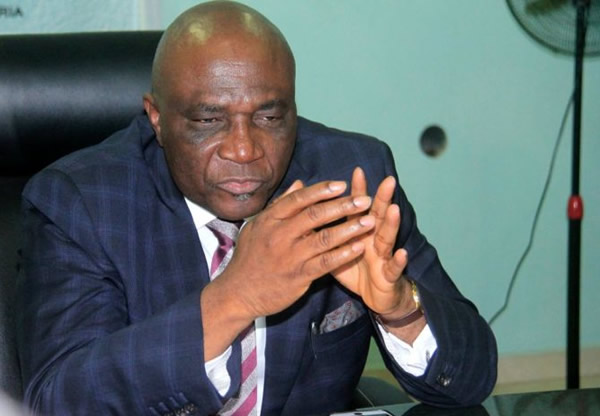The Presidency has clarified misconceptions surrounding the proposed tax reform bills currently before the National Assembly, emphasising that the legislation aims to streamline Nigeria’s tax system and boost economic growth.
In a statement issued on Monday, Presidential Spokesman Bayo Onanuga categorically stated that no part of the bills proposes the scrapping of key government agencies such as the Tertiary Education Trust Fund (TETFUND), the National Agency for Science and Engineering Infrastructure (NASENI), or the National Information Technology Development Agency (NITDA).
The bills suggest that earmarked taxes supporting agencies like NASENI, TETFUND, and NITDA will be phased out by 2030. However, these agencies will continue to receive funding through budgetary allocations to ensure their continued operation and effectiveness.
The presidential spokesman reassured Nigerians that the proposed reforms would not disproportionately favor wealthier states like Lagos and Rivers at the expense of others. Instead, the goal is to create a unified tax structure that promotes national development and improves the quality of life for all citizens, especially those who are economically disadvantaged.
“The tax reform bills will not make Lagos or Rivers more affluent while making other parts of the country poorer, as some have recklessly suggested,” he stated.
“The bills will not destroy the economy of any region. Instead, they aim to improve the quality of life for Nigerians, especially the disadvantaged, who are striving to make a living. Contrary to the lies being spread, the bills do not propose that NASENI, TETFUND, and NITDA will cease to exist in 2029 following the bills’ passage.
ALSO READ: Osun: Fire kills Customs officer, wife, four children
“Government agencies like NASENI, TETFUND, and NITDA will continue to be funded through budgetary provisions supported by company income tax and other levies paid by businesses, which are currently overburdened by special taxes,” he added.
Onanuga criticized what he described as deliberate misinformation from some commentators, noting that the tax reform bills have been wrongly portrayed as measures designed to impoverish certain regions, particularly the North.
He clarified that the bills are intended to reduce the tax burden on businesses, thereby fostering a more conducive environment for investment and economic development nationwide.
One of the primary objectives of the tax reform bills is to consolidate the multiple taxes currently imposed on businesses into a single framework.
Onanuga explained that the current tax regime, characterized by a proliferation of levies to fund various agencies, has undermined Nigeria’s competitiveness in attracting investment. He noted that many businesses have been forced to downsize or relocate due to the complexity and cost of compliance.
He emphasized that transitioning funding sources does not equate to dismantling these agencies. “No leading nation in education, science, or technology maintains separate taxes exclusively for funding specific agencies,” he said.
Onanuga argued that Nigeria must adopt international best practices, where taxes are pooled and allocated based on national priorities. The proposed reforms aim to eliminate inefficiencies and ensure a fair distribution of resources, enabling businesses to thrive and contribute to national development.
The presidential spokesman affirmed that President Bola Tinubu welcomes the robust public debate the bills have generated. He urged stakeholders, including governors, traditional rulers, civil society organizations, and professional associations, to participate in upcoming public hearings organized by the National Assembly.
He called for informed dialogue based on facts rather than emotions, cautioning against inflammatory rhetoric that could further polarize the country.
“One of the reasons President Bola Tinubu initiated the Tax and Fiscal Policy Reforms is the need to simplify tax administration in Nigeria and create a conducive operating environment for businesses,” Onanuga explained.
“For decades, businesses, investors, and private-sector players in Nigeria have complained about being overburdened by a myriad of taxes and levies, including those earmarked for funding various government agencies and initiatives.
“The multiple taxes complicate the economic environment, making Nigeria uncompetitive for investment and hindering the growth or survival of many businesses. Some companies have had to make the rational decision to relocate to other countries.
“We cannot continue on this path or delay reforms if this country is to deliver the prosperity needed for our people,” he concluded.
ALSO READ TOP STORIES FROM NIGERIAN TRIBUNE
Get real-time news updates from Tribune Online! Follow us on WhatsApp for breaking news, exclusive stories and interviews, and much more.
Join our WhatsApp Channel now
